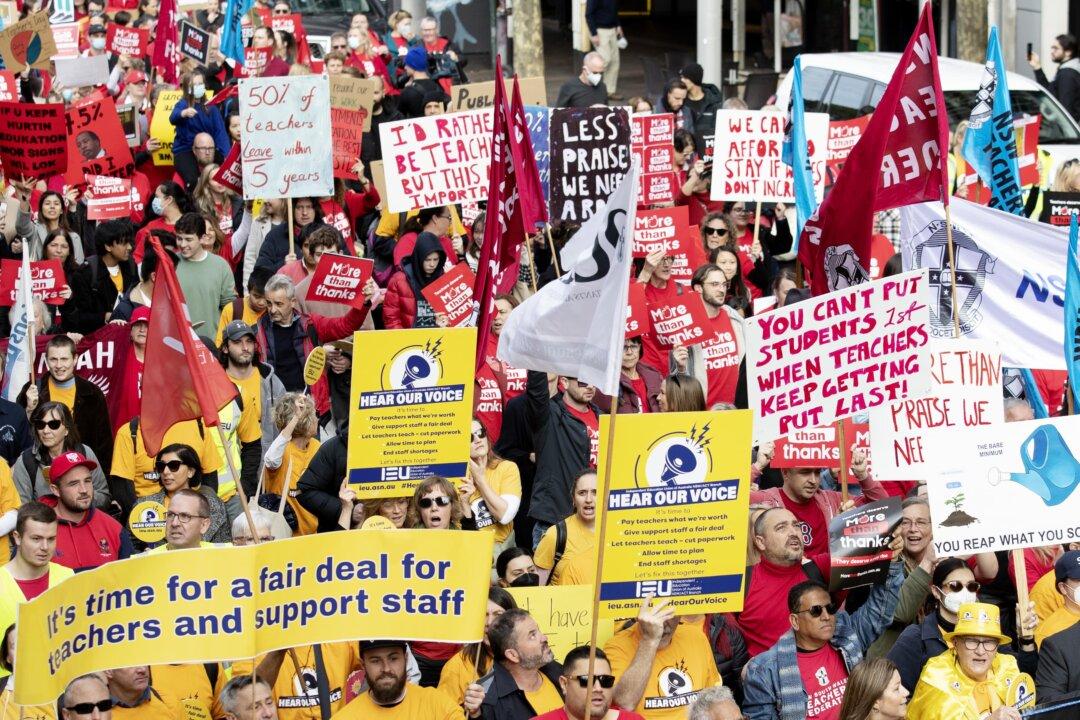One Australian expert says wage increases for teachers are not a silver bullet for resolving the myriad problems facing the New South Wales’ education sector.
His comment comes after tens of thousands of teachers on June 30 walked off the job in the biggest teacher strike in the state in over 20 years demanding better pay and conditions.




